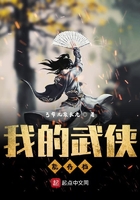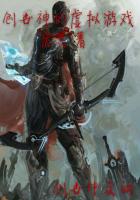Whatever arts remained to them, that of any form of writing was now totally unknown to the Asiki, although marks that might be writing, it will be remembered, did appear on the inner side of the Little Bonsa mask, an evidence of its great antiquity. Even in the days when they had wrapped up the Egyptian, the Roman, and other early Munganas in sheets of gold and set them in their treasure-house, apparently they had no knowledge of it, for not even an hieroglyph or a rune appeared upon the imperishable metal shrouds. Since that time they had evidently decreased, not advanced, in learning till at the present day, except for these relics and some dim and meaningless survival of rites that once had been religious and were still offered to the same ancient idols, there was little to distinguish them from other tribes of Central African savages. Still Alan did something, for obtaining a piece of white wood, which he smoothed as well as he was able with a knife, he painted on it this message:
"Messrs. Aston, Old Calabar. Please forward accompanying fifty-three packages, or as many as arrive, and cable as follows (all costs will be remitted): Miss Champers, Kingswell, England. Prisoner among Asiki.
No present prospect of escape, but hope for best. Jeekie and I well.
Allowed send this, but perhaps no future message possible. Good-bye.
Alan."
As it happened just as Alan was finishing this scrawl with a sad heart, he heard a movement and glancing up, perceived standing at his side the Asika, of whom he had seen nothing since the interview when she had beaten Jeekie:
"What are those marks that you make upon the board, Vernoon?" she asked suspiciously.
With the assistance of Jeekie, who kept at a respectful distance, he informed her that they were a message in writing to tell the white men at the coast to forward the gold to his starving family.
"Oh!" she said, "I never heard of writing. You shall teach it me. It will serve to pass the time till we are married, though it will not be of much use afterwards, as we shall never be separated any more and words are better than marks upon a board. But," she added cheerfully, "I can send away this black dog of yours," and she looked at Jeekie, "and he can write to us. No, I cannot, for an accident might happen to him, and they tell me you say that if he dies, you die also, so he must stop here always. What have you in those little boxes?"
"The gold you gave me, Asika, packed in loads."
"A small gift enough," she answered contemptuously; "would you not like more, since you value that stuff? Well, another time you shall send all you want. Meanwhile the porters are waiting, fifty men and three, as you sent me word, and ten spare ones to take the place of any who die. But how they will find their way, I know not, since none of them have ever been to the coast."
An idea occurred to Alan, who had small faith in Jeekie's "ma" as a messenger.
"The Ogula prisoners could show them," he said; "at any rate as far as the forest, and after that they could find out. May they not go, Asika?"
"If you will," she answered carelessly. "Let them be ready to start to-morrow at the dawn, all except their chief, Fahni, who must stop here as a hostage. I do not trust those Ogula, who more than once have threatened to make war upon us," she added, then turned and bade the priests bring in the bearers to receive their instructions.
Presently they came, picked men all of them, under the command of an Asiki captain, and with them the Ogula, whom she summoned also.
"Go where the white lord sends you," she said in an indifferent voice, "carrying with you these packages. I do not know where it is, but these man-eaters will show you some of the way, and if you fail in the business but live to come back again, you shall be sacrificed to Bonsa at the next feast; if you run away then your wives and children will be sacrificed. Food shall be given you for your journey, and gold to buy more when it is gone. Now, Vernoon, tell them what they have to do."
So Alan, or rather Jeekie, told them, and these directions were so long and minute, that before they were finished the Asika grew tired of listening and went away, saying as she passed the captain of the company:
"Remember my words, man, succeed or die, but of your land and its secrets say nothing."
"I hear," answered the captain, prostrating himself.
That night Alan summoned the Ogula and spoke to them through Jeekie in their own language. At first they declared that they would not leave their chief, preferring to stay and die with him.
"Not so," said Fahni; "go, my children, that I may live. Go and gather the tribe, all the thousands of them who are men and can fight, and bring them up to attack Asiki-land, to rescue me if I still live, or to avenge me if I am dead. As for these bearers, do them no harm, but send them on to the coast with the white man's goods."
So in the end the Ogula said that they would go, and when Alan woke up on the following morning, he was informed that they and the Asiki porters had already departed upon their journey. Then he dismissed the matter from his mind, for to tell the truth he never expected to hear of them any more.















